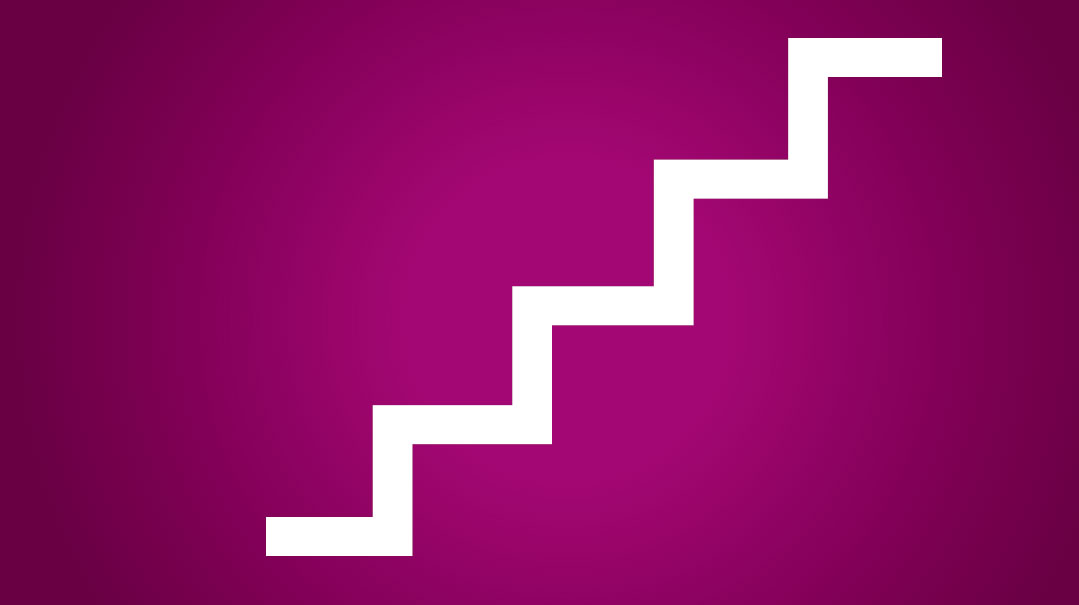Av Goal: One Step at a Time
| July 6, 2021When you focus on the now, the future becomes possible

Tammuz in Review
It’s ironic how not having a goal can itself be a goal, and how much you can accomplish while trying not to do anything at all.
Take putting my daughter to bed, for instance. Like in most homes, bedtime is often a struggle. And I think a huge part of it is the pressure I put on her — and myself! — that she has to be settled by a certain time.
So lately I’ve been spending just ten soothing minutes with my daughter in her room, with no expectation that she needs to fall asleep. I wasn’t trying to clean up the room while she got drowsy; I wasn’t trying to review her day with her; I wasn’t trying to get out of there as quickly as possible so I could move on to the next task on my night’s to-do list.
I knew something had changed the very first night we did this when, after the ten minutes were over and I started to leave, she said, “Mommy, You can go now. I feel tired enough to just fall asleep.”
Av Goal: One Step at a Time
We’re all familiar with the story of the rock that inspired one of our greatest leaders of all time. The slow drip of water demonstrated to Rabi Akiva that change happens gradually; and over time, even a solid rock can be broken and molded into something new.
I see another angle in the lesson here: When we focus too much on the magnitude of a challenge, when we project too far into the future, we become paralyzed in the moment and that can prevent us from achieving anything at all.
Rabi Akiva not only drew a lesson about the possibility of growth, but also kept himself from becoming overwhelmed by the task. What if he’d said: “This is going to take forever! How will I ever learn it all?” Imagine the loss to the Torah world that would have caused.
Women are endowed with a quality called binah yeseirah, which allows us to see beyond the present, to mentally build upon what’s in front of us and create a future. We embody the principle of emunah: I can’t see it now, but I know it will happen. It was this quality that enabled them to stay strong and hopeful in Mitzrayim, to believe the Geulah would come.
As with any trait, it can be used to our benefit or detriment. If I’m looking into the future and I’m afraid — if my thoughts become overburdened with all of the possible scenarios, outcomes, setbacks, and efforts, then I get stuck. I don’t have the internal calm to deal with what is right now.
Menuchas hanefesh is in many ways, a gift from Hashem. He gives us the exact tools, resources, and mental capacity to handle this very moment. And at the next moment or stage, He will do it again.
“I woke up tired and I have a really long day ahead of me. How will I get it all done?”
“I have one child now and I’m just managing. How in the world will I handle another?”
“This is going to mean not just one doctor’s appointment, but follow-ups every month for a year. How will I make time for that?”
The truth is, there are no satisfying solutions to these problems because at that moment, I haven’t yet been given the tools or the strength to do what will need to get done. My only job is to focus on what’s in front of me this very moment, because for that, I have everything I need.
This mindset can help me not worry about next year’s problems, and it can even help moment to moment in tackling what seems to be an overwhelming job. My kitchen sink can often become a dumping ground that develops into a formidable stack, so I used to have a sign above my sink that said: “Take life one dish at a time.” That’s how I need to approach things: one dish, one challenge, one step at a time.
Staying focused, being present, and not thinking about the future (too much) also allows me to utilize the few moments of calm when they’re there. When things settle down and I run to check who needs to be called or which room needs to be cleaned up, I’m running out of the present. Some quiet moments of contemplation, or a short tefillah of gratitude to Hashem, are usually a much better use of that time.
As I approach Tishah B’Av, one of my fears is how I’ll utilize the day and the moments when I’m free enough to connect to the pain and the meaning. I hope this month to train myself at being in the present — not worrying about the meal that will need to be made and the strength I’ll need to make it, but accomplishing the task of this very moment wholeheartedly.
MANTRAS OF THE MONTH
One dish at a time
Don’t borrow tomorrow’s problems
“Ha’atid adayin” — The future has not yet happened (Ibn Ezra)
This month I will:
Regularly ask myself: What am I focusing on right now?
When there’s too much going on, make a list of everything on my mind and map out what needs to be dealt with now, later today, tomorrow, etc.
Take the tasks that seem overwhelming and break them down into smaller steps.
Take note of when I’m speaking or thinking about future potential issues that are not relevant now. Daven to Hashem that I have the strength to deal with that when it comes.
Present Moment
Focusing on the moment is often a challenge because we have so many distractions. Here are a few tips to stay where you need to be:
Write it down. When a distracting thought pops into your head (items for the grocery list, a person you need to call, etc.) make a note so your brain doesn’t feel it needs to keep reminding you.
Make a verbal commitment. If you’re with someone else, state emphatically that your goal is to be present and not to talk about or think of future tasks or fears.
Turn off your phone. For me it’s not enough to put it on silent, I need to have it totally off so I don’t feel the need to check it. Just seeing a message or a name pop up can cause a lot of tension about other things you need to take care of, so when you need to be focused, don’t look. (If it will be for a while, it’s a good idea to let your family know that they won’t be able to reach you.)
Change locations. Sitting in a messy living room, at a cluttered work desk, or near a sink full of dishes can easily get you stressed about your list of chores. Move to a different room, or better yet, go out so you can keep your eye on the ball.
(Originally featured in Family First, Issue 750)
Oops! We could not locate your form.


